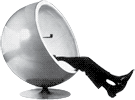Why a mini laptop?
There is an apparent trend towards small laptops. I think there is a number of reasons for this trend.
- OLPC project showed that it is possible to make a really small, cheap and robust computer that is usable.
- There make less sense to increase performance (it is good enough) in computers and therefore price is becoming an important factor in competition.
- People want to be mobile.
- Internet are becoming more important for communication and amusement.
- Price is very attractive. These computers sell for around 500 USD while alternative (MacbookAir, Lenovo X61) full configured laptops cost around 2500 USD.
Requirements
My main requirements for a mini laptop is;
- Small and light
- Reasonably usable keyboard
- Robust to handle mobile use. Preferably SSD hard disc.
- Screen size of at least 1024 pixels
- Light i.e. around 1 kg
- Good support for different OS alternatives. For me in particular OpenBSD.
Alternatives
We are at the beginning of this trend but there are some alternatives to choose from. Available now or in a short time frame.
- Lenovo IdeaPad S10. Released in october.
- MSI Wind (TechWorld Review)
- Acer Aspire One (Review by Laptop Magasine, TechWorld Review)
- Asus EEE the original (TechWorld Review, OBSD on 900)
- Dell Mini Inspiron - official in august 2008
- Via OpenBook Sony variant
- HP mini note (review, HP till Sverige, OBSD on 2133).
- Lenovo Thinkpad X200 (Laptop review, X200 at amazon).
Final choice (i thought)
Asus EEEPC 1000H may wery well be it. Great keyboard and support for OpenBSD.
- Wireless chipset: RALINK RT2860
- Ethernet adapter: Atheros AR8121/AR8113/AR8114 PCI-E OR is it Attansic Technology L1E (most likely)
Which seems to be working in OpenBSD ...
Final Choice - MSI Wind U100
See OpenBSDOnMSIWind for reasons behind my choice and experiences by installing OpenBSD on it.
